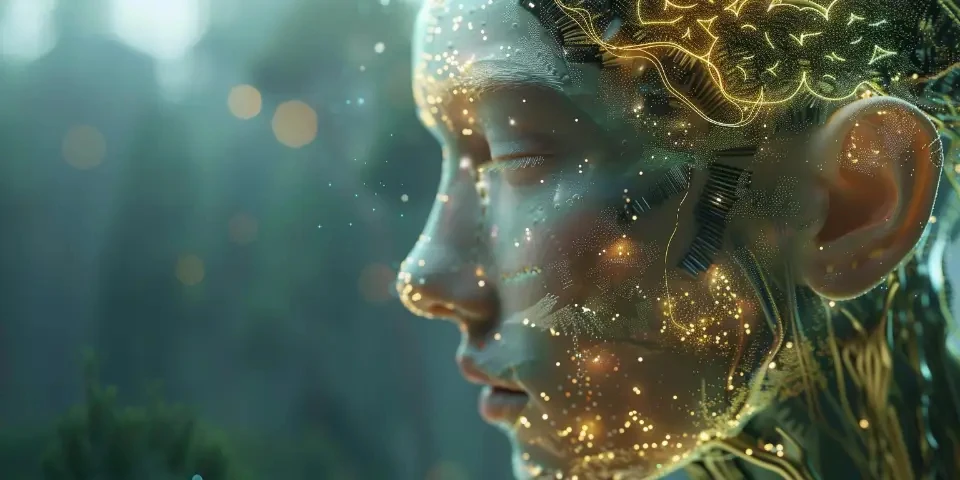From Shakespeare to ChatGPT Exploring Literary Style Evolution through AI-Generated Poems
Introduction With the advent of AI technology, we have witnessed remarkable advancements in natural language processing. One intriguing application of AI is the generation of literary content, enabling us to explore the evolution of literary styles over time. In this article, we delve into the transition from Shakespearean literature to AI-generated poems using the influential language model, ChatGPT.
1. Shakespearean Influence
William Shakespeare, the renowned playwright and poet, is considered one of the greatest contributors to English literature. His works showcase a distinct poetic style characterized by complex language, rich imagery, and iambic pentameter. Shakespeare's influence on subsequent generations cannot be overstated, as his writings have shaped the foundations of modern literature.

Through AI technology, we can now attempt to generate poems in a Shakespearean style. By training language models on Shakespearean texts, they can mimic his unique syntax and vocabulary. However, despite producing impressive results, AI-generated Shakespearean poems often lack the profound depth and emotional nuances inherent in the original works.
2. The Emergence of AI in Literature
The integration of AI in literature has opened up new possibilities for creative expression. Language models like ChatGPT have been trained on vast corpora of text, enabling them to capture the essence of various literary styles. These models provide users with interactive conversational experiences, making them ideal for generating diverse types of literary content.
ChatGPT builds on OpenAI's GPT series and uses a transformer architecture to process and generate text. It incorporates both human-written prompts and data from the internet, allowing it to respond with coherent and contextually relevant passages. While AI-generated poems may not match the brilliance of renowned authors, they offer a fresh perspective on literary creativity.
3. The Evolution of Literary Style
The transition from classical literature to AI-generated poems signifies an evolution in literary style. With the shift to AI, there is a departure from traditional norms and an exploration of unconventional ideas and expressions. While Shakespearean literature adheres to specific rules and structures, AI-generated poetry thrives on experimentation and breaking boundaries.
AI-generated poems often exhibit a fusion of multiple literary styles, incorporating elements from various eras. They can seamlessly blend Victorian sensibilities with modernist imagery or intertwine surrealistic concepts with postmodern themes. This stylistic diversity allows AI to challenge the norms and redefine the boundaries of poetic expression.
4. Ethical Considerations
As AI technology continues to advance, ethical questions arise regarding the ownership and originality of AI-generated literary works. Who should be credited as the author?the AI model, its programmers, or the literary giants whose styles influenced the training? It is crucial to establish guidelines and frameworks to address these issues and ensure fair attribution and recognition.
Additionally, there is a need to safeguard against potential misuse of AI-generated content. If AI can flawlessly replicate unique writing styles, it raises concerns about the authenticity of literary works. Striking a balance between AI creativity and preserving the integrity of human ingenuity poses a significant challenge for researchers and policymakers in the future.
5. Hybrid Approaches: Shakespeare Meets AI
Researchers have also explored hybrid approaches that combine the creativity of AI with the brilliance of expert human poets. By using AI models as collaborators, human poets can leverage the expanding capabilities of language models to enhance their own creative processes. This collaboration serves as a conduit for innovative concepts and forms of expression, leading to a symbiotic relationship between humans and AI in literature.
Through this collaboration, AI can aid in overcoming writer's block, suggesting alternative words or phrases, and even inspiring unexpected ideas. This hybrid approach allows poets to experiment with new styles while retaining their own unique artistic vision, resulting in fascinating combinations of human creativity and AI's computational power.
FAQs
Q: Can AI-generated poems ever surpass the works of renowned poets like Shakespeare?
A: While AI-generated poems can imitate certain aspects of renowned poets' styles, they lack the depth, emotion, and lived experiences that make the originals exceptional. AI-generated poems should be seen as a form of creative exploration rather than a replacement for human artistic expression.
Q: How can AI-generated poetry contribute to the literary landscape?
A: AI-generated poetry offers a fresh perspective on literary creativity by pushing boundaries, fusion of diverse styles, and introducing unconventional ideas. It adds a new dimension to the literary landscape, inspiring artists and challenging traditional norms.
Q: Can AI-generated poetry be considered original literary work?
A: The question of originality in AI-generated poems is complex. While AI models exhibit creativity, they are trained on existing texts and can only replicate what they have learned. Originality lies in human creativity, and AI can only serve as a tool or collaborator in the creative process.
Conclusion
The evolution from Shakespearean literature to AI-generated poems represents both a departure from tradition and a step towards innovation. AI offers new avenues for creative exploration, pushing the boundaries of literary style. By understanding the strengths and limitations of AI-generated content, we can appreciate its contributions while preserving and celebrating the essence of human creativity in literature. References: - GPT-3: Language Models are Few-Shot Learners (OpenAI)
Explore your companion in WeMate